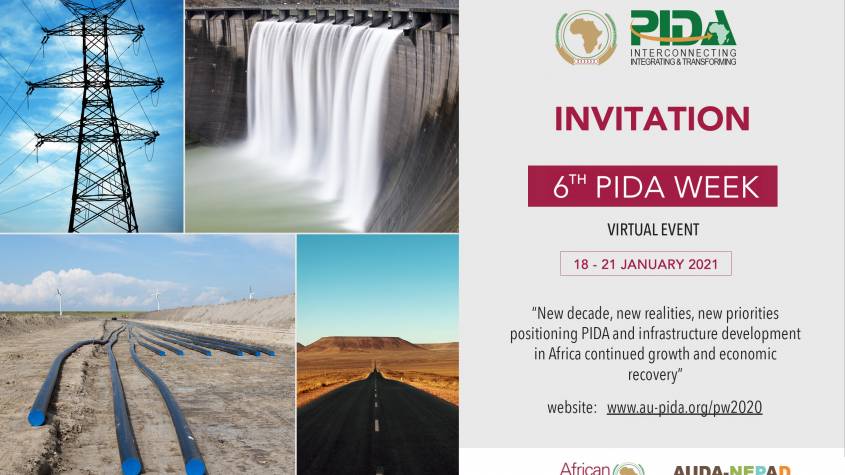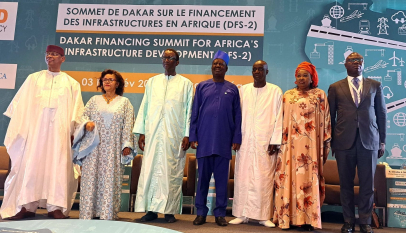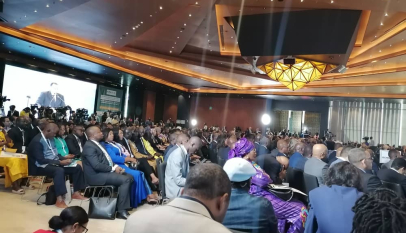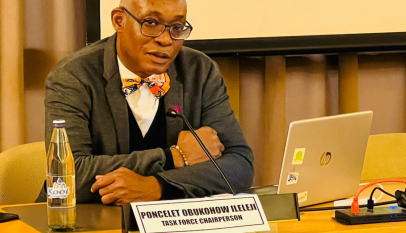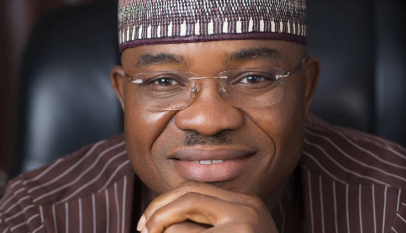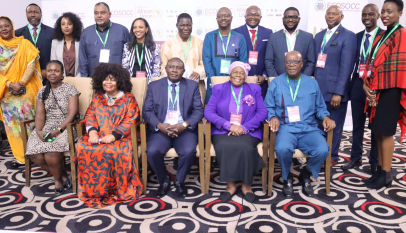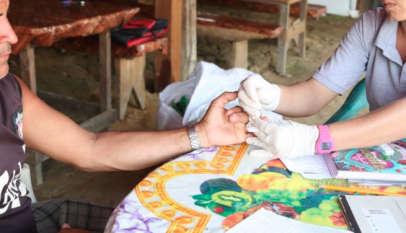6th PIDA Week positions infrastructure at the heart of Africa’s economic recovery
The 6th Programme for Infrastructure Development in Africa (PIDA) Week, a weeklong event aimed at engaging and exchanging information on progress in the implementation of the PIDA programme, has commenced virtually on Monday.
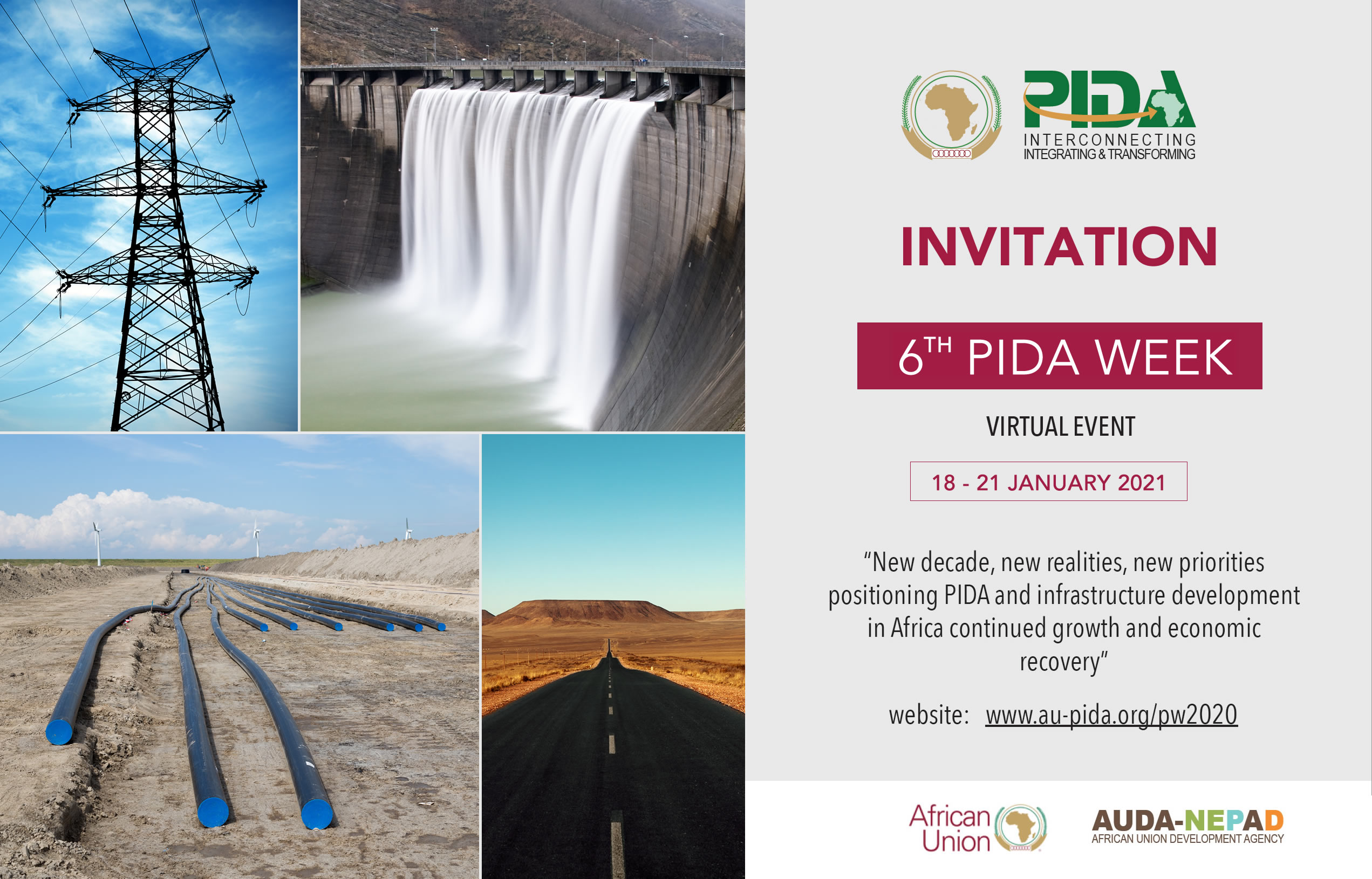
The event which is being hosted by the African Union Development Agency (AUDA-NEPAD), the AU’s development agency, is holding January 18 -21 under the theme: “New decade, new realities, new priorities – positioning PIDA and infrastructure development in Africa’s continued growth and economic recovery.”
PIDA is the AU’s strategic framework for regional and continental infrastructure development, guiding its infrastructure development agenda, policies, and investment priorities; it provides a framework for engagement with Africa’s development partners on the provision of regional and continental infrastructure as well as facilitating the physical, economic and social integration of the continent in support of the African Continental Free Trade Area (AfCFTA).
PIDA is a composite of continental infrastructure initiatives with an implementation strategy and portfolio of projects for prioritised implementation, under the PIDA Priority Action Plan (PIDA- PAP), segmented into different phases that will run through 2040. The different phases of PIDA PAP cover four key infrastructure sectors, namely transport, energy, information and communications technology (ICT) and trans-boundary water management (TWM).
In his remarks at the opening session: the Continental Business Network (CBN) Virtual Breakfast, Ibrahim Mayaki, CEO of AUDA-NEPAD, said dearth of infrastructure project management capacity had been the hallmark of Africa’s infrastructure projects. “Before PIDA came into being, the main obstacle we faced was lack of prioritisation of regional projects. So, critical partners decided that it would be incoherent if we didn’t prioritise before implementing projects. We need prioritization in order to foster alignment.”
CBN is an African heads of state initiative which seeks to facilitate private sector advice and leadership in essential continent‐wide infrastructure projects through the creation of high level private sector forum. It acts as an exclusive infrastructure investment advisory platform providing thought leadership on a range of strategic issues like policy, investments risk ratings, project structuring as well as key constraints to the implementation of PIDA projects.
Mayaki described CBN as one of AUDA-NEPAD’s strategic partners in its quest to accelerate PIDA’s implementation adding that lack of project preparation capacity grossly widens Africa’s infrastructure financing gaps. “We need to start reflecting on how to attract private sector into this projects. This thinking led to the creation of CBN, which is a gathering of institutional or private sector investors from all over the continent who could help us think better about the issue of tackling the financing gap by responding to the desire, need, objectives and constraints of the private sector.”
The AUDA-NEPAD chief therefore urged for solutions-oriented discussions at the 6th PIDA Week, which seeks to facilitate cross-sectoral linkages to continental infrastructure projects and facilitate sharing lessons and experiences on the implementation of PIDA projects; promote private sector participation in PIDA, as well as providing a marketplace to showcase PIDA Projects. “When we talk about financing for infrastructure today, we need to be very frank. We need to change our narrative and be pragmatic in the context of finding solutions,” he said.
In his remarks, Hubert Danso, interim chair of the CBN Council emphasised the need for improved access to information and data to allow for informed decision making on infrastructure investment at national, regional and continental levels. “African regional infrastructure is an investible sector. However, one of the issues for us as the institutional investment community, is access to information and data that can inform the decision for investment. In addition, the definition of infrastructure needs to be broadened for us to fully function in this digital economy.”
Ambassador Birgitte Markussen, head of EU delegation to the African Union, in her remarks said even as the Covid-19 pandemic had led to unprecedented challenges it also created investment and business opportunities. “We firmly believe that in Africa, infrastructure is a key priority for recovery across the different sectors and PIDA is a key tool in this context as well is in implementing the AfCFTA, which we are strongly supporting,” she said.
Markussen said as the AU’s major partner, the EU had a long-standing record of fostering infrastructure development on the African continent, across PIDA’s four priority sectors: transport, energy, ICT and transboundary water resources. Evidence of this, she said, could be seen in the EU’s four key initiatives, namely: European External Investment Plan (EIP); Africa-Europe Alliance task force, African Europe Foundation as well as the European Union African Business Forum.
PIDA’s implementation is being constrained by myriad challenges such as the lack of finance; lack of capacity for project preparation; limited involvement of the private sector in infrastructure projects, amongst others. It was against this backdrop that PIDA Week was initiated in 2015 as a forum for key stakeholders in the implementation of PIDA to review and reflect on progress in the implementation of the programme and also discuss ways to overcome its challenges.
The 6th PIDA Week, which is taking place against the backdrop of global economic and social uncertainties occasioned by the Covid-19 pandemic, brings together international and regional expertise from multiple stakeholders who will engage in weeklong deliberations on how Africa can lead the way in the delivery of infrastructure in the post-COVID era, amongst other pressing issues.
The 6th PIDA Week will deliberate on thematic issues such as infrastructure priorities in the 2nd Priority Action Plan for the Programme for Infrastructure Development in Africa (PIDA-PAP II), spanning 2021 to 2030; Post-COVID 19 infrastructure financing, delivery and resilience; the critical role of infrastructure in the implementation of AfCFTA; as well as COVID-19 impact of reduced economic growth and changes in investment and exports patterns on the continent, amongst others.
This year’s PIDA Week event features different sessions ranging from the CBN virtual breakfast to sessions on the AfCFTA, cybersecurity, the African Single Electricity Market (AfSEM), gender-responsive financing for post-covid-19 recovery efforts, amongst others. The four-day event will also feature launch of many infrastructure-related reports and publications, namely the 2nd PIDA Job Outlook, the Annual PIDA Progress Report and the OECD African Development Dynamics Report 2021, amongst others.

